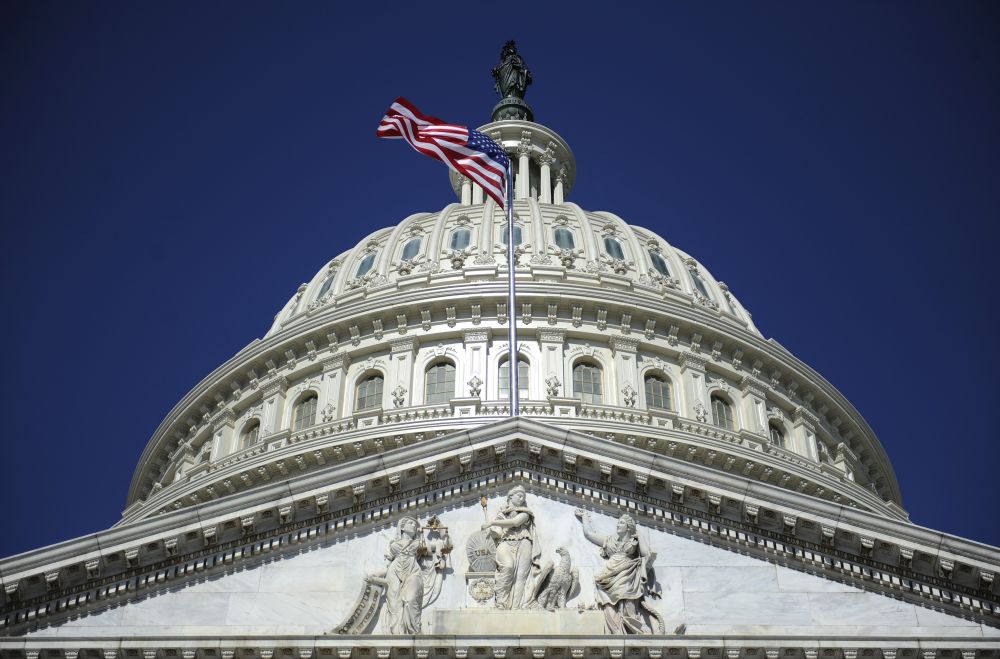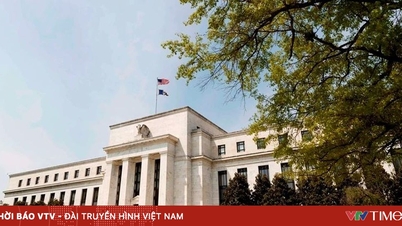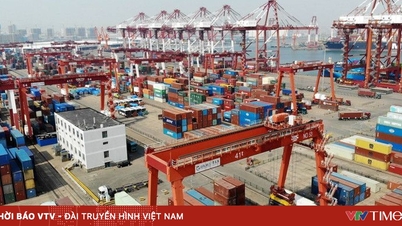 |
| China and Japan are anxiously watching the debt ceiling negotiations in the US. (Source: NBC News) |
On May 27, US media reported that President Joe Biden and Republican lawmakers had reached a preliminary agreement on raising the debt ceiling. According to informed sources, the White House and negotiators had reached an agreement in principle to prevent a default.
If approved by Congress, the agreement would help the United States avoid default before the Treasury Department runs out of funds to cover expenses on June 5th.
Why are Japan and China worried?
China and Japan own $2 trillion – more than a quarter of the $7.6 trillion in US government bonds held by foreign entities. Beijing began increasing its purchases of US bonds in 2000, when the US effectively supported China's entry into the World Trade Organization (WTO), leading to a boom in its exports. This generated a large amount of US dollars for China, and they needed a safe place to store them.
US government bonds are widely regarded as one of the safest investments in the world, and the value of US bonds held by China surged from $101 billion to a peak of $1.3 trillion in 2013.
China has been the largest foreign creditor of the United States for more than a decade. However, escalating tensions with the administration of former US President Donald Trump in 2019 led Beijing to reduce its holdings of US bonds, and Japan surpassed China to become the top creditor of the US that year.
Tokyo currently holds $1.1 trillion in US Treasury bonds, compared to China's $870 billion, meaning both countries are vulnerable to a potential collapse in the value of US government bonds should a US default occur.
Josh Lipsky and Phillip Meng, analysts from the Atlantic Council's Center for Economic Research, an organization that studies and analyzes international affairs in the Atlantic region, stated: "Japan and China's holdings of large amounts of U.S. government bonds could harm these countries if the value of those bonds falls sharply."
Because a decrease in bond values would lead to a reduction in Japan's and China's foreign exchange reserves. This means they would have less money to pay for essential imports, settle foreign debt, or support their national currencies."
However, Lipsky and Meng argue that the real risk comes from a global economic downturn and the potential for a US crisis due to default.
They said, "This is a serious concern for all countries, but it poses a particular risk to China's fragile economic recovery."
After an initial boom following the unexpected lifting of Covid-19 pandemic restrictions late last year, the Chinese economy is now struggling as consumption, investment, and industrial output all show signs of slowing down.
Deflationary pressures have worsened as consumer prices have remained virtually unchanged for the past few months. Another major concern is the soaring youth unemployment rate in China, which reached a record high of 20.4% in April 2023.
Meanwhile, the Japanese economy is only just beginning to show signs of emerging from the stagnant growth and deflation that have plagued the country for decades.
A major threat
Even if the U.S. government runs out of money and all its extraordinary measures to pay all the bills – a scenario that Treasury Secretary Janet Yellen has said could happen as early as June 1st – the likelihood of a U.S. default could still be low.
Some U.S. lawmakers have proposed prioritizing bond interest payments for the largest bondholders.
Alex Capri, a senior lecturer at NUS Business School, said this would be done by drawing on funding from other sources, such as government pension funds and government employee payroll funds, but would prevent major defaults for countries like Japan and China.
And if there is no clear alternative to cope with increased market volatility, investors could swap shorter-term bonds for longer-term ones. This could benefit China and Japan, because they are concentrated holders of long-term U.S. bonds.
This suggests that the spread of financial instability and economic recession is a far greater threat.
Marcus Noland, Vice President and Director of Research at the Peterson Institute for International Economics, said: “A default in the U.S. means government bond prices fall, interest rates rise, the value of the dollar falls, and volatility increases.”
It could also be accompanied by a decline in the US stock market, increasing stress on the US banking sector and exacerbating stress on the real estate sector. It could also cause a disruption in the connection between the global economy and financial markets."
China and Japan are relying on the world's largest economy to support their domestic businesses and jobs. The export sector is particularly crucial for China, as other pillars of the economy – such as real estate – have slowed down. Exports generate one-fifth of China's Gross Domestic Product (GDP) and provide jobs for approximately 180 million people.
Despite rising geopolitical tensions, the United States remains China's largest trading partner. It is also Japan's second-largest trading partner. In 2022, total US-China trade reached a record high of $691 billion, while Japan's exports to the US increased by 10% during the same period.
Mr. Noland emphasized: "When the U.S. economy slows down, it will show through trade activity, for example by reducing Chinese exports to the U.S. and contributing to a global economic downturn."
At this point, neither Tokyo nor Beijing can do much other than wait and hope for the best.
Analysts say that rushing to sell US government bonds would be "self-defeating," as it would significantly increase the value of the yen or yuan against the dollar, causing export costs for these two countries to skyrocket.
Will the yuan reap the benefits?
In the long term, some analysts argue that a potential US default could prompt China to accelerate its efforts to create a global financial system less dependent on the US dollar.
The Chinese government has reached a series of agreements with Russia, Saudi Arabia, Brazil, and France to increase the use of the yuan in international trade and investment.
A Russian lawmaker said that the BRICS group of leading emerging economies—China, Russia, India, Brazil, and South Africa—is considering creating a common currency for cross-border trade.
Analysts believe this will undoubtedly act as a catalyst for China to further promote the internationalization of the yuan and for Beijing to redouble its efforts to bring its trading partners into the newly announced "BRICs Currency" initiative.
However, China faces several serious obstacles, such as the controls it imposes on the amount of money that can flow into and out of its economy.
According to analysts, Beijing is showing less willingness to fully integrate with the global financial market.
Derek Scissors, a senior fellow at the American Enterprise Institute, asserted: "Seriously pushing for de-dollarization would make transactions in yuan much more volatile."
Recent data from the international payment system SWIFT shows that the Chinese yuan accounted for 4.5% of global trade financing in March 2023, while the US dollar accounted for 83.7%.
Josh Lipsky and Phillip Meng emphasized: "There is still a long way to go before a credible alternative to the US dollar can emerge."
Source










































































































Comment (0)